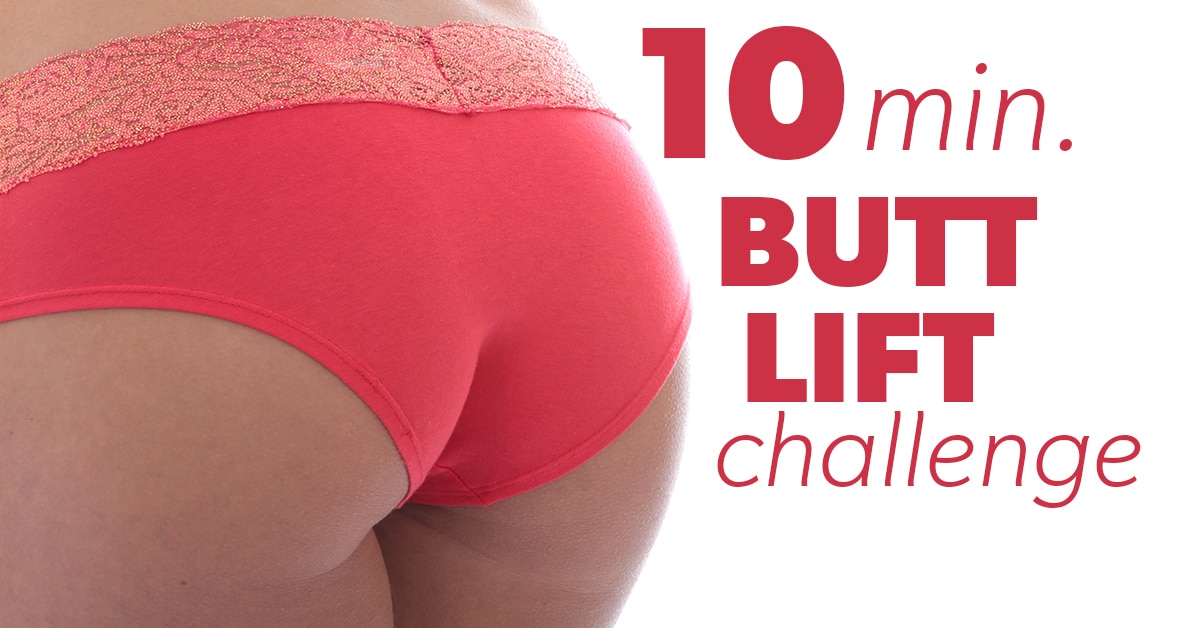Imagine waking up to the horror of clumps of hair on your pillow. Or combing your hair and leaving more hair than you care to on the comb. Over time, it becomes clear that your once lustrous mane is thinning. So much so that close family and friends have been mentioning it.
Hair loss is a horrifying experience that you wouldn’t wish on your worst enemy. And, now you find that it’s happening to you, and you are at a complete loss on why.
Pinpointing the exact cause of hair loss can be difficult. Several factors contribute to this including genetics, hormone change, and aging. Your lifestyle could also be the culprit.
And then, there is stress. But, unlike the others, stress is manageable and reversible. If you take care of the stress, you could get back your lovely tresses.
Overview
The Underlying Mechanism: How Stress Affects Hair Growth
Types of Stress-Related Hair Loss
Recognizing Stress-Induced Hair Loss
Effective Strategies for Reversing Stress-Induced Hair Loss
Preventive Measures
Frequently Asked Questions (FAQs)
Manage Stress for Thick, Lustrous Hair
The Underlying Mechanism: How Stress Affects Hair Growth
The link between stress and hair loss is a rather complex one. It comes down to underlying mechanisms in the hair growth cycle. Here’s how it goes.
Telogen Effluvium
Stress will result in a hair growth condition known as telogen effluvium. The normal hair growth cycle involves the following stages:
- The growth stage or anagen is where blood flow and nutrients help produce new hair. It can last from 2-7 years. At any typical time, 85% of hair is in this growth stage.
- The resting phase or telogen is where hair detaches from the follicle and sheds. About 10-15% of hair is in this phase. Yet, stress can push 70% of hair in the anagen stage into telogen.
- The shedding phase or catagen is the end of active hair growth.
Stress disrupts the normal cycle by pushing large amounts of follicles to the telogen phase. This happens due to telogen effluvium. The hair ends up resting instead of growing. The result is more shedding and the temporary thinning of hair.
Prolonged stress further exacerbates the issue, resulting in inflammation. There’s poor nutrition delivery to the scalp and oxidative damage. All this affects the anagen or growth stage.
Hormonal Changes
The body releases stress hormones like cortisol and adrenaline during stress episodes. High elevations, especially of cortisol, will disrupt the hormone balance in the body—and that includes hormones that help in hair growth regulation.
High cortisol levels will lead to increased production of androgens or male hormones. Excessive amounts of such hormones will shrink hair follicles, leading to miniaturization and hair thinning. That is common in those suffering from androgenetic alopecia or pattern baldness.
Inflammation
Stress contributes to systemic inflammation within the body. That impacts the health of the hair follicles, leading to hair loss.
Nutrient Absorption
In high stress levels, the body can’t absorb or utilize essential nutrients. Such nutrients are crucial to hair growth and health.
Immune System Suppression
Chronic stress suppresses the immune system. This makes the body more susceptible to autoimmune conditions and infections. All these can lead to hair loss due to alopecia areata. In such a case, the immune system attacks the hair follicles.
Please take the necessary steps to address chronic stress if you want to prevent hair loss.
Types of Stress-Related Hair Loss
Let’s look at the different types of hair loss associated with stress.
Telogen Effluvium
Telogen effluvium tops the list of types of stress-induced hair loss. You could lose 50%-100% of your hair if you have this condition. Yet, once you address your underlying stressors, hair tends to regrow.
Alopecia Areata
Alopecia areata is an autoimmune condition. By mistake, the immune system attacks the hair follicles. You will notice round, patchy hair loss on the scalp. It can also affect other hair-generating parts of the body.
Trichotillomania
Not everyone handles stress in the best way. For some, a quick relief comes from pulling out one’s hair. This is a psychiatric disorder known as trichotillomania. Sufferers of this disorder have very significant hair loss. Stopping this habit can be difficult. Thus, there is a need for therapeutic intervention to manage the condition.
Traction Alopecia
Stress-related behavior, such as excessive manipulation or hairstyling, can lead to traction alopecia. It is a type of stress-related hair loss caused by repeated tension or pulling on the hair shaft.
Androgenetic Alopecia
Due to chronic stress, male or female baldness/androgenetic alopecia can worsen. True, there is a strong genetic component to the condition. However, increased cortisol levels due to stress can hasten hair thinning.
Recognizing Stress-Induced Hair Loss
Is stress always the main reason for hair loss? No, it isn’t. As we stated, there are many other contributing factors. Age, genetics, and hormonal imbalance are some of them. So, how do you know whether stress is behind it all? Well, see if you notice any changes following a stressful life event. You may get hair loss 1-3 months afterward. You’ll notice the following:
- A sudden increase in hair shedding. It’s not uncommon to lose some hair every day. So, a few strands on your pillow or brush should not be a cause for concern. But if it’s getting excessive to more than 100 strands, that’s an issue.
- Noticeable thinning of hair volume in diffuse areas. Aside from volume loss, the scalp may also start to show through. You will also notice wider part lines and a receding hairline.
- Increased hair fall while shampooing or brushing. There may also be scalp tenderness due to inflammation or scalp tension.
- Changes in hair texture that could contribute to the appearance of thinning. The hair may become frizzy, brittle, and dry.
- Behavioral changes resulting in increased hair pulling. That could be a sign of trichotillomania, an expression of anxiety or stress.
Please take note of any hair loss lasting more than 6 months. It could indicate chronic telogen effluvium from unrelieved stress. Seek medical help to identify the causes and reverse your hair loss.
Effective Strategies for Reversing Stress-Induced Hair Loss
Once you identify that stress is contributing to your hair loss, it is time to reverse the process. These stress-busting, multifaceted tips can work wonders.
1. Stress Management
Get rid of the underlying issue by tackling it head-on. Some stress is healthy. But if you let it overwhelm you, things will go downhill fast. So, take proactive measures to manage stress including the following:
- Practice meditation, yoga, and deep breathing exercises to activate the relaxation response. Yoga asanas like the child’s pose and headstand use gravity to increase blood flow to the scalp.
- Get enough high-quality sleep. Also, take breaks and maintain a work-life balance.
- Exercise to reduce the production of stress hormones. There’s the added benefit of optimal well-being. Cardio also promotes circulation and oxygenation to stimulate dormant follicles.
- Spend time doing hobbies, connecting with loved ones, and practicing self-care.
- Consider counseling or therapy for the psychological and emotional stress factors. Cognitive behavioral therapy (CBT), for instance, can help with stress relief. The therapist helps recognize and change negative patterns that contribute to stress build-up.
- Conditions like trichotillomania need therapeutic intervention to manage.
2. Dietary Adjustments
Healthy hair needs proper nutrition to grow and flourish. So, what you put in your mouth matters a lot.
- Eat more protein-rich foods like eggs, fish, and beans to provide amino acids for hair growth.
- Take vitamin C supplements to improve iron absorption. That enables better oxygen and nutrient supply to hair follicles.
- Consume foods rich in B vitamins like whole grains, nuts, and avocados. B vitamins help in healthy cell metabolism and hair production.
3. Supplementation
If your diet is not taking care of your nutritional needs, a little help doesn’t hurt. Supplements can take care of nutritional deficiencies. Please consult a healthcare provider for guidance on what you need. Beneficial supplements that can help reduce hair loss include the following:
- Biotin is a B-complex vitamin that aids in keratin production for hair strands.
- There are linkages between vitamin D deficiency and alopecia areata. Get enough vitamin D from sunlight, foods, or supplements.
- Zinc supplements prevent hair shedding, as zinc deficiency is common with prolonged stress.
4. Topical Treatments
Some topical treatments are effective in preventing hair loss and promoting hair regrowth.
- Apply hair growth serums containing caffeine or minoxidil. Such serums stimulate blood circulation and prolong the anagen phase.
- Prescription medications like spironolactone for women and finasteride for men can help. Please consult a dermatologist to determine the best for your hair loss type.
- Use hair-thickening shampoos and sprays containing proteins, biotin, and collagen to strengthen your hair.
- Scalp massages with essential oils like rosemary, peppermint, and lavender help improve blood circulation. Proper blood circulation is critical for nutrient delivery, waste removal, and hormone distribution. It also helps with immune system function, temperature regulation, and stress reduction.
5. Natural Hair Care
Stop stressing your hair follicles with some of the things you do to your hair.
- Avoid hairstyles that pull on the hair roots.
- Switch to shampoos that are free of sulfates, parabens, and other chemicals. Sulfates such as sodium laureth sulfate and sodium lauryl sulfate are forming agents in shampoos. While they clean hair well, they are harsh and can dry or irritate the scalp. Parabens are chemical preservatives that can cause health issues. So, opt for organic or natural products instead.
- Let your hair air-dry instead of heat-drying to prevent follicle damage.
6. Dermatological Treatments
There are a series of dermatological treatments that can help regrow hair.
- Minoxidil medication can help regrow hair in both men and women.
- Low-level laser therapy uses light energy to stimulate cellular activity in follicles. That helps with reducing hair loss.
- Platelet-rich plasma (PRP) therapy involves injecting nutrient-rich plasma into the scalp. The experts will use your blood for this procedure.
7. Medication
Medications may be necessary for chronic stress, anxiety, or autoimmune issues. Please consult a trichologist for guidance.
- Anti-anxiety meds like SSRIs help manage stress levels to reduce hair loss.
- Immunosuppressants can treat alopecia areata by calming the immune response.
Preventive Measures
Don’t wait for hair loss to happen to start looking for a cure. Take steps to prevent hair loss in the following ways:
- Practice stress management techniques like meditation, journaling, yoga, etc.
- Follow a balanced, nutritious diet. Eat plenty of protein and vitamins like iron, zinc, and B vitamins.
- Use a gentle, natural shampoo and a conditioner free of sulfates and parabens.
- Avoid excessive use of heat styling tools to prevent damage to your hair follicles.
- Take care of breakage and split ends with regular trims.
- Consider taking hair supplements as a preventive measure.
Frequently Asked Questions (FAQs)
Q: How long does hair regrowth take after stress-related hair loss?
A: With proper stress management, hair regrowth happens within 3-6 months after the stress trigger. Be patient, though. Significant regrowth can take 6 months to 1 year, depending on severity.
Q: What’s the difference between regular hair shedding and stress-induced hair loss?
A: Normal hair loss is 50-100 strands daily. Stress-related shedding exceeds 100 strands daily over an extended period. It results in increased shedding and thinner hair density.
Q: Which hair products are beneficial for stress-related hair loss?
A: Look for hair growth serums with caffeine or redensyl to stimulate the hair follicles. Thickening shampoos with keratin, biotin, and collagen strengthen hair strands. Scalp detox scrubs remove product build-up that can block the hair follicles.
Manage Stress for Thick, Lustrous Hair
Stress can lead to mental, physical, and emotional issues. One of the manifestations of stress is hair loss. But it’s not all gloom and doom. If you manage your stress, you will notice hair regrowth. Self-care, topical treatments, medications, and proper hair routines can help promote hair regrowth. By getting rid of stress, your hair could grow back in as little as 3 months. Finally, consult healthcare providers regarding your hair loss if need be. A therapist can help you deal with underlying issues resulting from stress. Dermatologists, on the other hand, can recommend the best treatments for excessive shedding of hair. A holistic approach to tackling this multifaceted issue is your best bet.






